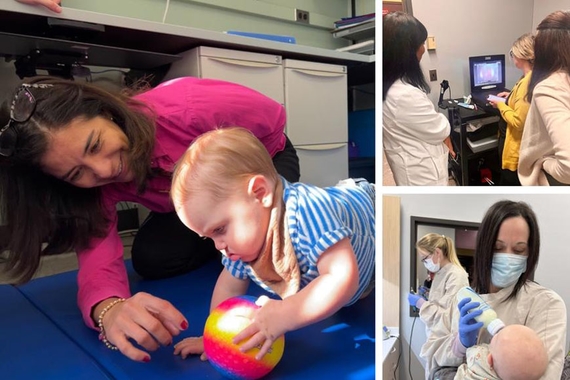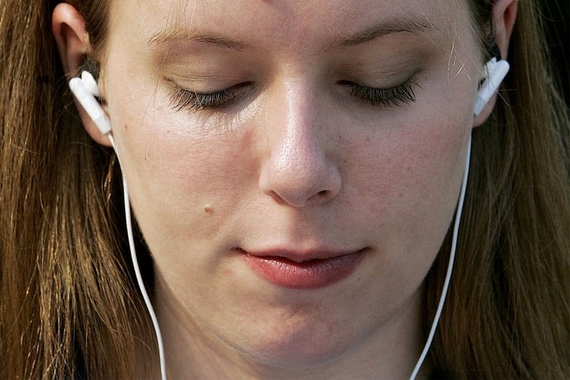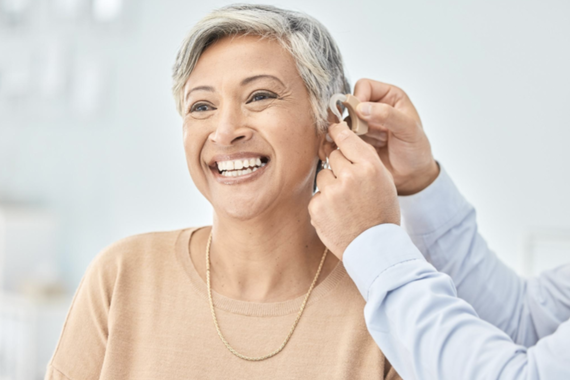Fall 2020 Newsletter
It has been just a few months since I last wrote a chair letter, but much has happened. Even by the standards of 2020, fall has been quite eventful.
Much of what has been eventful has been some good news. This fall, Director of Clinical Programs in Audiology Dr. Sarah Angerman was made a fellow of the Minnesota Speech-Language-Hearing Association (MNSHA), and Professor Emerita Dr. Arlene E. Carney was awarded MNSHA’s Honors of the Association. These awards show the great commitment that our department has to the profession of audiology in Minnesota. Congratulations to Drs. Angerman and Carney.
Welcome New Faculty
Our department was happy to welcome two new tenure-track faculty members this semester. One of these is Dr. Kerry Ebert. Dr. Ebert was on our faculty last year as a contract assistant professor and joined us as a tenure-track assistant professor this fall. Dr. Ebert is an expert on language disorders in bilingual children. She received her PhD from our department under the mentorship of Dr. Kathryn Kohert, who is now professor emerita of SLHS.
Dr. Natalie Covington also joins us as an assistant professor this fall. Dr. Covington is an expert on language and memory in adults with acquired language disorders, including traumatic brain injury. Dr. Covington received her PhD from Vanderbilt University, where she also completed a postdoctoral fellowship.
We are thrilled to welcome Drs. Ebert and Covington to our faculty. Their intellect, energy, and commitment are evident in everything they do, and we are very grateful that they decided to continue their careers here.
Adapting During the Pandemic
Drs. Covington and Ebert joined us in the middle of the COVID-19 pandemic. The pandemic has impacted every facet of our lives and work. Our department’s rapid transition to providing telehealth services in speech-language pathology, in-person clinical services in audiology with enhanced infection control and protective equipment, and technology-enhanced distance learning are testaments to the skill and commitment of our faculty and staff.
Our transition to remote learning was very successful. Moreover, the exercise of adapting our curriculum to an online format has given us ideas for how we can include more technologically-enhanced and remote learning in our curriculum in the future. We hope that the long-term outcome of the pandemic is greater access to our curriculum to students who couldn’t previously access our in-person course offerings. Our long-term goal is reflected in our spring 2021 course offerings, in which Dr. Peter Watson will teach a course on telepractice in speech-language pathology.
- Our entire faculty feel confident that teaching is going well. The best evidence we have of this comes from our students themselves, who shared the following about spring 2020 undergraduate courses:
- “[The instructor was] understanding and flexible through these weird times. He completely restructured how we took [tests] to eliminate any stress we could face. I wholeheartedly appreciate what [the instructor] did for us.”
- “[The instructor] first and foremost sent us emails/announcements right away letting us know that we would be moving to an alternative mode and gave us the opportunity to ask questions/bring concerns up. That truly eased my mind during this crisis.”
- “[The instructor] was in constant communication with us, and listened to student feedback about what’s [...] working. [The instructor] reshaped the course for us and worked with us.”
And from graduate students:
- “[The instructor] was an excellent communicator. She let us know right away that she was working on something and we could expect to hear from her soon. Then, when she had labs prepared, she gave us enough notice to complete the assignments. [The instructor] was also very quick to respond to questions or to offer help.”
- “I appreciate all [the instructor] did for us during this crazy time and ensuring that we could finish the program on time, despite finishing our clinical placements on early notice to complete the assignments. [The instructor] was also very quick to respond to questions or to offer help.”
- “[The instructor] was one of the very few professors that constantly was reaching out to students ensuring we were doing okay with the transition. He proved time and time again that he was available to us for whatever we needed. He has such respect for his students and is willing to work with them. He also took our feedback and would make changes accordingly. My voice was heard in his class.”
Reckoning with Racism
Lastly, our department continues to reckon with the racism in our society, and, more broadly, with all types of discrimination, including sexism, transphobia, homophobia, and ableism.
We have met regularly to make tangible changes to our department’s policies and procedures, which we hope will be an important step to changing the culture. Among other things, we have radically overhauled our MA and AuD admissions to be more holistic and we eliminated consideration of GRE scores for applicants. We hope that the result of this new admission system will be a student body that reflects the diversity of our society.
More importantly, we hope that the changes we are making to our department’s culture will mean that every one of these new students who comes here will find a system that lifts them up and hears their voices. I think it’s fair to say that we echo a comment made by one of our current students, who wrote, “Although there’s a lot more to do and this is a lifelong practice, I can say with certainty that I’m grateful to be a part of this program at the U.”
We have all read many emails this semester that implore us to take care of ourselves. For many of us, we have already exhausted our ability to take care of ourselves. At this point, we need to think not of taking care of ourselves, but of taking care of each other. Our individual capacity to take care of ourselves will wax and wane. As a society, I am confident that we will continue to have the capacity to take care of each other.
As you look ahead to what are surely going to be a challenging few months of illness and tragedy during this pandemic, I implore you: take care of each other. I, and the rest of your SLHS family, pledge that we will do the same.
Benjamin Munson, PhD
Professor and Chair



